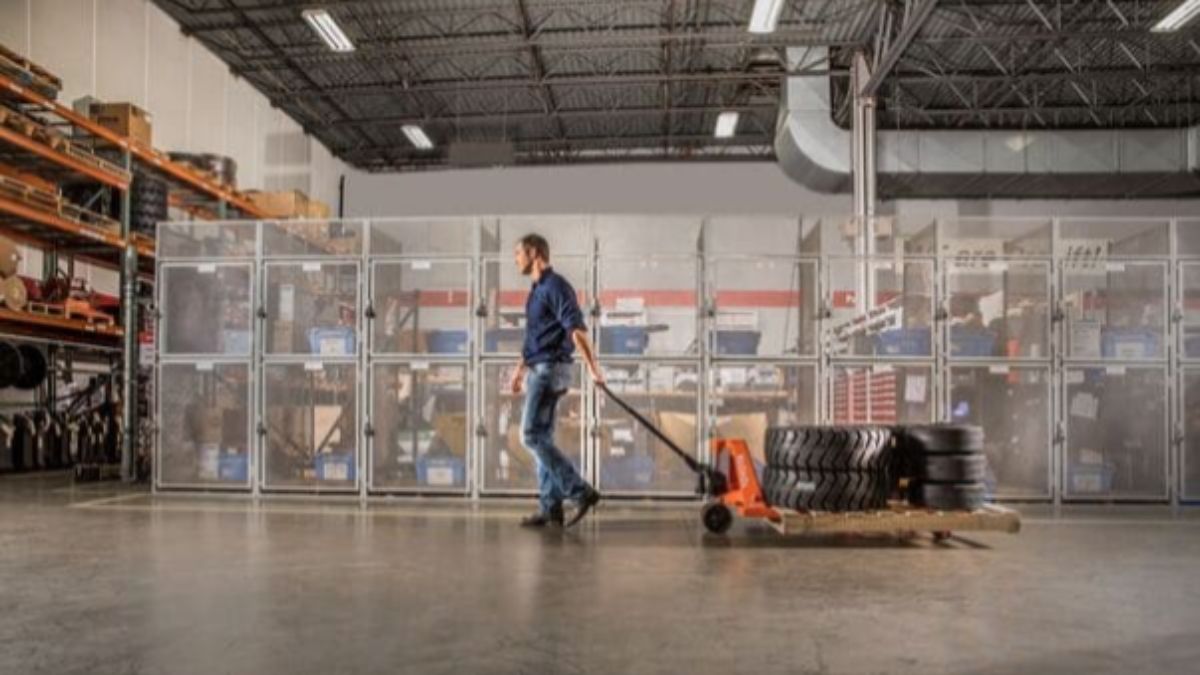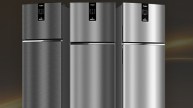Running a warehouse is a balancing act. You’ve got inventory to move, space to manage, and deadlines that don’t wait for slow equipment. In an environment where efficiency is everything, choosing the right-hand pallet truck isn’t just a minor decision; it can impact workflow, labour productivity, and even workplace safety. The wrong pallet truck can slow down operations, increase strain on workers, and lead to unnecessary maintenance costs.
So, how do you make sure you choose the right one? Let’s break it down.
Understanding Your Warehouse Needs
Before you even consider looking at specifications, step back and consider how your warehouse runs. Not all warehouses are created equal. Some are working with light consumer products, while others are working with heavy industrial materials. The correct pallet truck for you will depend on things such as:
● The weight and size of the loads you move daily.
● The flooring and pathways in your warehouse.
● The frequency with which the pallet truck will be used.
Don’t Overestimate or Underestimate the Load Capacity
One of the biggest mistakes people make when buying a hand pallet truck is overestimating or underestimating how much weight they need to move. If you choose a truck with a smaller capacity than needed, you’re asking for constant breakdowns and hazards. However, purchasing the highest capacity truck when you do not need it entails spending more than is necessary. Match the truck’s load capacity to the heaviest load you regularly move. If you’re dealing with mixed loads, it’s better to opt for a slightly higher capacity to make sure you don’t push the equipment beyond its limits.
Getting the Right Fork Length and Width
Not all pallets are created equal, and that means you need to be mindful of the fork length
and width when choosing a pallet truck. The length of a typical Euro pallet goes perfectly well with general-purpose pallet trucks. But if you are working with over-length pallets or those made to a customer’s specified sizes, you’ll be better off with an over-length truck. Similarly, the width of the forks matters. Narrow forks are great for handling compact loads, while wider forks work better for stability when carrying larger items. If your warehouse regularly deals with both, you might want to look into models that offer adjustable fork widths for added flexibility.
The Key to Smooth Operations is the Wheel Type
The type of wheels on your hand pallet truck can make a huge difference in how easily it
moves.
● For instance, nylon wheels are very resilient and excellent for heavy loads, yet noisy
and abusive to sensitive flooring.
● If you have a mixed-surface warehouse or noise regulation, you will find polyurethane
wheels a better option because they are softer and have less noise.
● If you’re dealing with wet or uneven floors, rubber wheels absorb shocks better and
provide more stability.
The right wheel type isn’t just about comfort; it directly affects efficiency, durability, and even
worker fatigue.
Manoeuvrability Making Life Easier for Workers
A hand pallet truck is meant to make work easier, not harder. But if your warehouse has tight
corners, narrow aisles, or heavy foot traffic, you’ll need to think about manoeuvrability.
Seek out features such as ergonomic handles, which minimise stress on employees’ wrists
and allow improved control. A 180-degree rotating radius can also go a long way, especially
in a small warehouse where square footage is precious. Another thing to consider is weight distribution. A well-balanced pallet truck will require less force to push and pull, reducing strain on workers and making movement faster and
smoother.
Storage for Warehouse
Storage space is often overlooked when buying warehouse equipment, but it’s an important
factor. A bulky pallet truck that doesn’t fit neatly into your storage system can quickly become a hassle.
In the event of restricted space at your warehouse, choose a mini or collapsible pallet truck that can easily be stored out of the way. Some brands come with a feature to stack these trucks upon each other to effectively store them where space would not be compromised. Well-organised storage for warehouse equipment isn’t just about keeping things tidy; it extends the lifespan of your equipment and ensures smooth daily operations.
Durability and Maintenance
A hand pallet truck may appear to be a straightforward device, but it still has to be constructed to be durable. Find high-quality materials, such as stainless steel, which is resistant to corrosion and rust. If your warehouse is subject to moisture or temperature variations, this becomes critical. A reliable hydraulic system is also essential. A leak-proof hydraulic pump provides smooth and consistent lifting, reducing downtime caused by maintenance issues.
This is where choosing a trusted brand makes a difference. Companies like Godrej focus on
building durable, high-performance material handling equipment that lasts longer and requires minimal upkeep.
Conclusion
Picking the right-hand pallet truck isn’t just about lifting and shifting – it’s about optimising warehouse operations, reducing worker fatigue, and saving money in the long run. If you’re looking for a reliable solution, Godrej Enterprises Group’s material handling equipment offers a range of high-quality, durable pallet trucks that are designed to meet the needs of modern warehouses. Investing in the right equipment today will make sure that your warehouse runs efficiently, safely, and cost-effectively for years to come.












